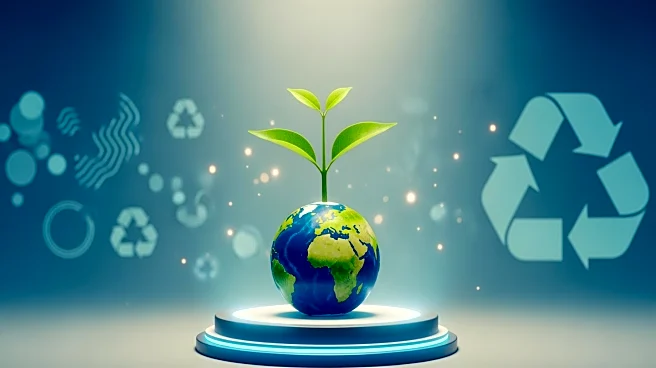What's Happening?
The Energy and Resources Institute (TERI) has released a paper ahead of the 30th Conference of the Parties (COP30) to the UNFCCC, urging a re-focus on equity and human development in global climate cooperation.
The paper, authored by Dr. Shailly Kedia and reviewed by Mr. RR Rashmi, emphasizes the need to integrate human development and energy consumption into climate justice frameworks. It highlights the imbalance between climate ambition and development, noting that energy poverty equates to human poverty. The study proposes a sustainable energy use benchmark of 2000 watts per person, aligning with SDG 7 for affordable and clean energy. It categorizes 187 countries into eight zones based on their energy consumption and Human Development Index (HDI), advocating for differentiated yet complementary development trajectories.
Why It's Important?
This initiative by TERI underscores the critical need to balance climate goals with human development, particularly in developing countries facing severe energy poverty. By redefining the principle of Common but Differentiated Responsibilities and Respective Capabilities (CBDR-RC), the paper provides a framework for equitable climate action. The focus on energy access as a fundamental component of human development could influence policy decisions at COP30, potentially leading to more inclusive and sustainable climate strategies. High-income countries are urged to lead decarbonization efforts while supporting developing nations, which could reshape international climate finance and technology transfer mechanisms.
What's Next?
As COP30 approaches, TERI calls for a re-anchoring of climate cooperation in equity and shared prosperity. The paper suggests that incremental pledges are insufficient for achieving just transitions, advocating for a comprehensive approach that bridges climate ambition with human development. This could lead to new commitments from countries to address energy poverty and overconsumption, influencing future climate agreements and development policies. The framework proposed by TERI may serve as a basis for negotiations, potentially impacting global climate governance and the operationalization of the Paris Agreement.
Beyond the Headlines
The paper's emphasis on energy poverty as human poverty highlights ethical dimensions of climate justice, suggesting that sustainable development cannot be achieved without addressing fundamental human needs. This perspective may drive a shift in climate discourse, prioritizing human well-being alongside environmental sustainability. The integration of HDI and energy consumption data offers a dynamic tool for assessing national responsibilities, potentially influencing how countries approach their climate commitments and development strategies.









